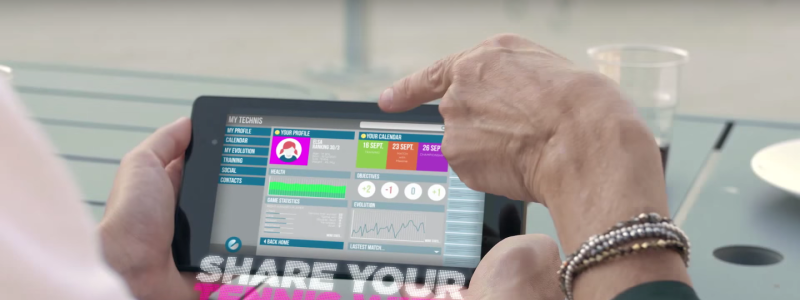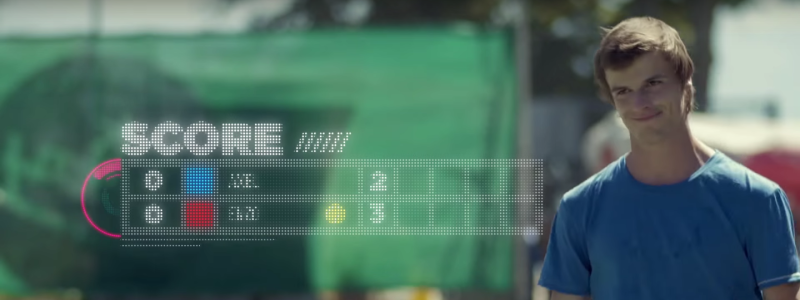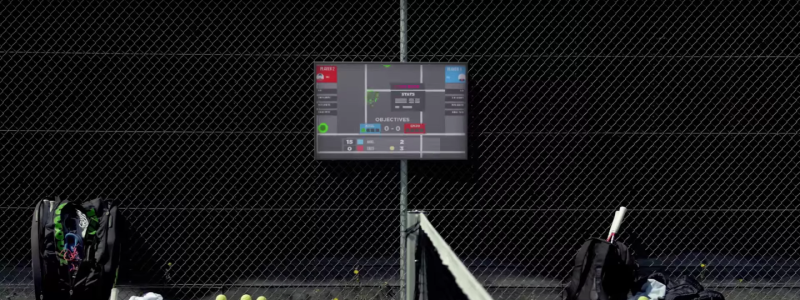A Swiss start-up develops the tennis court of the future
The company, Technis, has designed a fully tactile court surface capable of recording where the ball bounces and the position of the players on the court. The information is displayed on a screen in real time.
Innovation and tennis: two areas where Switzerland excels. Switzerland dominates international competitiveness rankings and its top tennis players are household names: Roger Federer, Stanislas Wawrinka, who won Switzerland's Davis Cup in 2014, and 'Princess' Martina Hingis, the world's youngest-ever number one, have made tennis history – and are still making it! It is therefore no coincidence that a Swiss start-up company is revolutionising tennis courts.
At the prestigious Swiss Federal Institute of Technology in Lausanne (EPFL), Technis has perfected an entirely tactile surface to make tennis courts interactive. The still secret technology can be directly integrated into the surfaces of synthetic and resin courts, the kinds of court on which by far the most tennis is played nowadays. Every movement is detected, from the bounces of the ball to the position of the players at any time in a match.
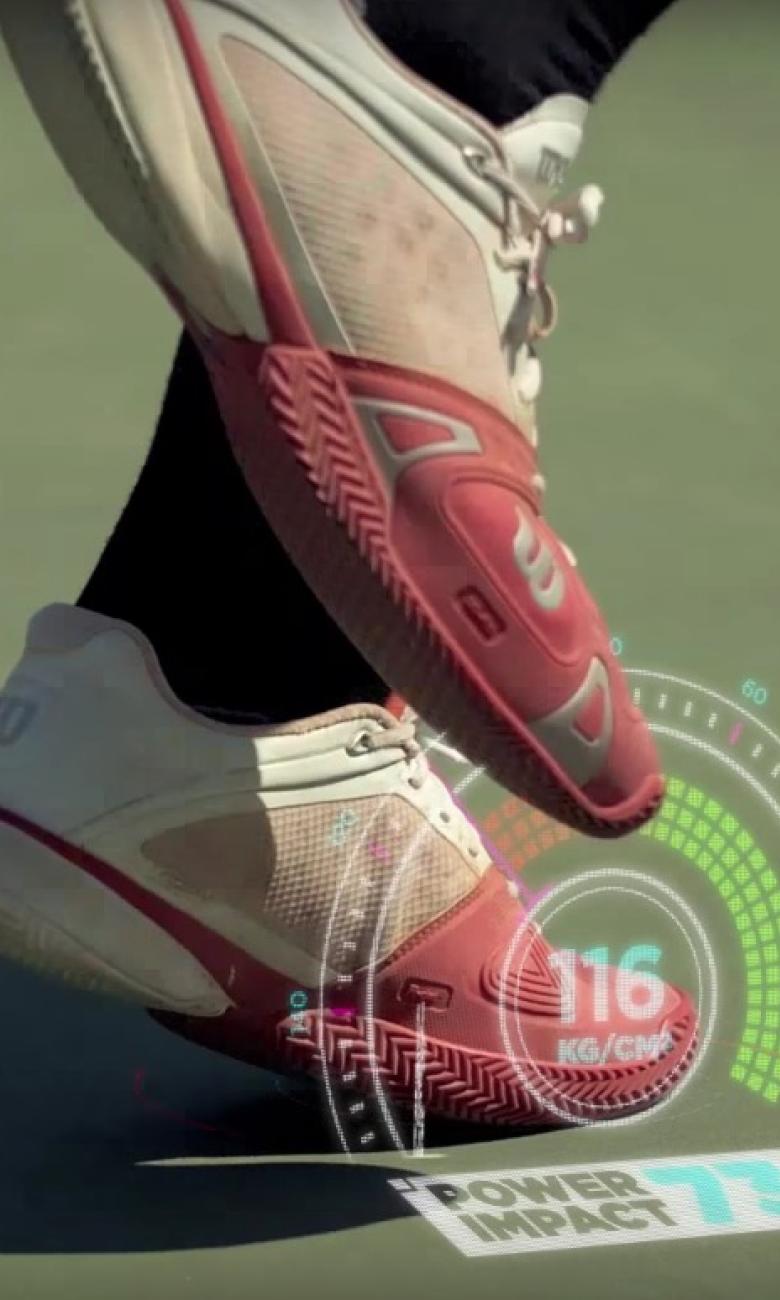
The recorded information is displayed in real time on a screen on the edge of the court – which can also assist the umpire in his job. An app enables players to monitor their performance for the entire duration of the match, find partners, and share their results.
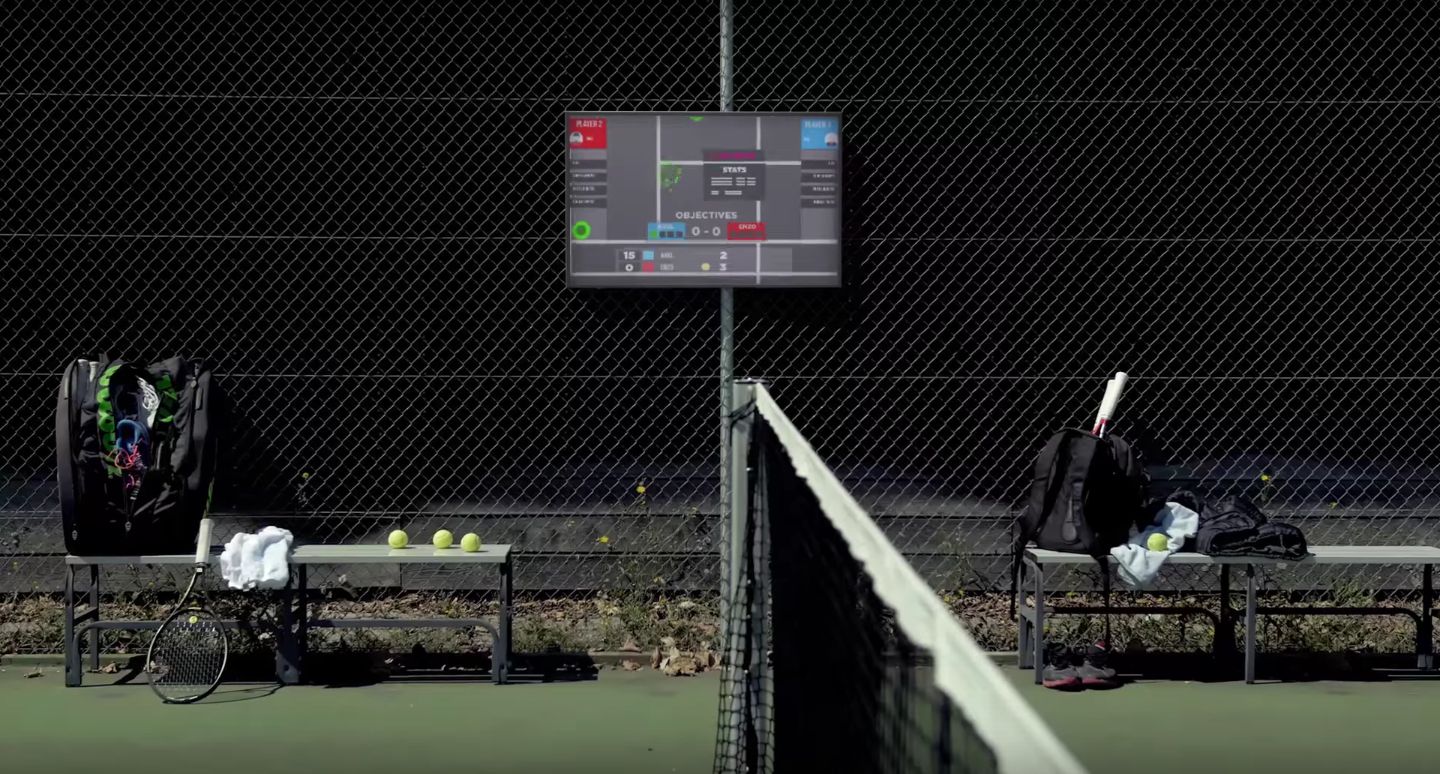
Mad about tennis
The project began in 2014, in a game between Wiktor Bourée and Martin Hofmann, two engineers with a passion for tennis. "We often play together but we don't have an umpire to decide whether our shots are really in or out, but there is also the aspect of added fun," explains Wiktor Bourée, 24. The two friends founded Technis with Naïk Londono, a former tennis pro and engineer whom Martin Hofmann met at a start-up camp in Silicon Valley.
The company was an instant success. Technis has since won several prizes, including the 'Swiss Startups Award' last October worth CHF 50,000. "The competitions have enabled us to make some money and confirm that we're on the right track," said Wiktor Bourée. The company has received other financial support, such as an EPFL grant for innovation (known as an 'Innogrant'). The company already has 11 employees and works with various partners, including tennis clubs and tennis court construction companies. It is now looking for investors.
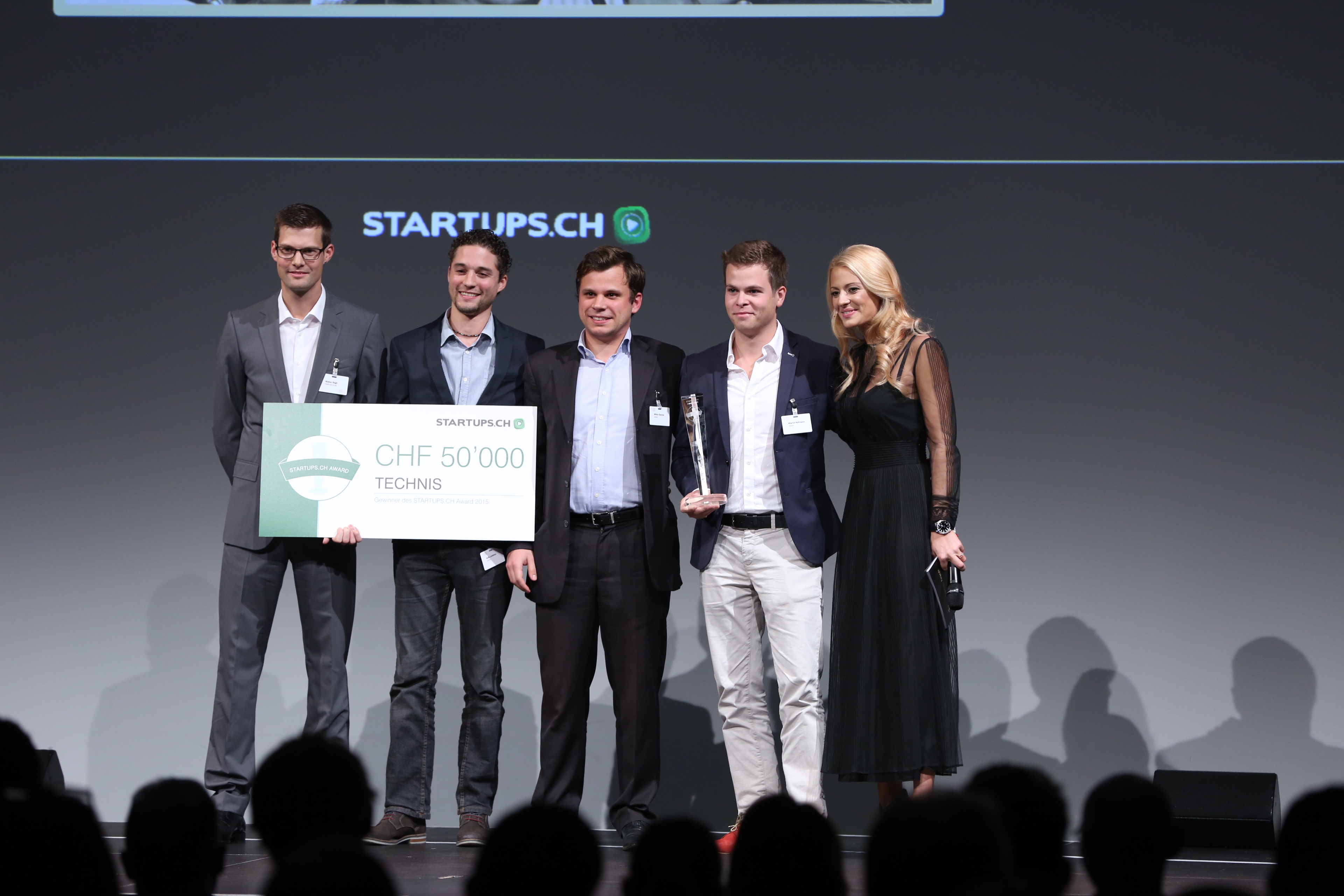
"Each point counts"
The start-up is initially targeting the amateur market where there is no professional video technology, such as Hawk-Eye. "In tennis, each point counts and precision at the line is crucially important," says Wiktor Bourée. The young company head says he is not looking to replace umpires, while nevertheless pointing out their absence at numerous amateur tournaments. Clubs in Switzerland have already shown an interest. Technis is also in contact with some sports federations and wants to expand "abroad rapidly".
Is the long-term plan to replace the existing infrastructure, including cameras, of the major tournaments? "Our prime target is not the US Open, even though that would be fantastic," says Wiktor Bourée. He stresses the "interactive" and "fun" aspects of Technis technology in comparison with existing "passive" systems. "It is possible to set your own challenges, for example to practise aiming your service at an exact point on the court that you define on the screen. Your results appear immediately." It could happen one day that even the court becomes a screen: "We are working on it."
The Swiss aura
Technis can count on the aura currently surrounding Swiss tennis. "It's an additional boon to be a start-up company from a country with top world players like Federer, Wawrinka and Bacsinszky," adds Wiktor Bourée. It also underlines the importance of having "high-quality Swiss technology".
Market launch is planned for 2016. In the same year the first test court will be set up in the French-speaking part of Switzerland. "It will be a full-scale demonstration," says Wiktor Bourée. "The aim will then be to equip a maximum number of courts." And the engineer is already looking further afield than tennis: "This intelligent surface can have many applications." Traduction: Technis could target other sports...
